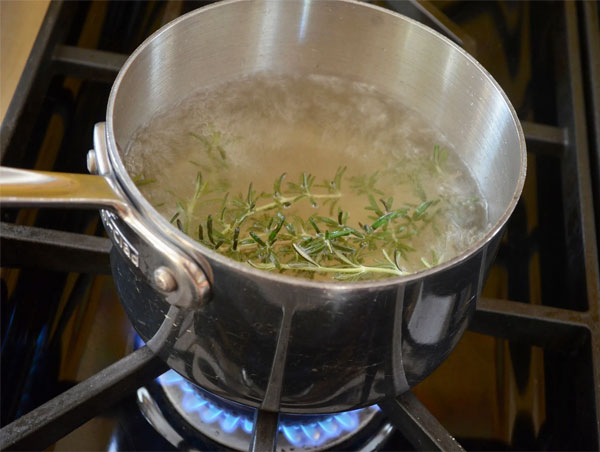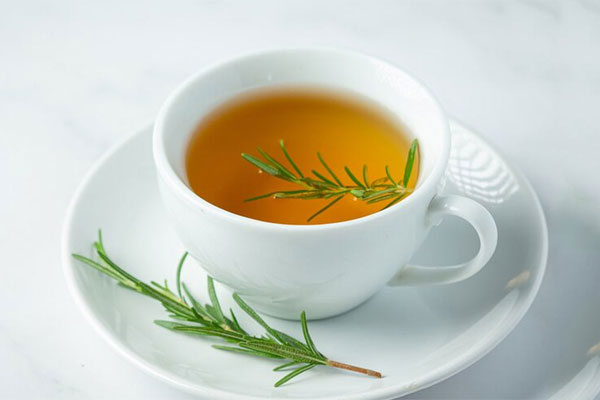Blogs
How many minutes should I boil rosemary?
Rosemary is a versatile herb known for its distinctive aroma, rich flavor, and numerous health benefits. Whether used in cooking, herbal tea, hair care, or aromatherapy, boiling rosemary correctly is essential to extract its beneficial compounds while preserving its natural properties.
However, the boiling time can vary depending on how you plan to use it. Boiling rosemary for too short a time may not fully release its essential oils and nutrients, while boiling it for too long could result in a bitter taste or loss of potency.
This article will explore the ideal boiling time for different purposes, helping you achieve the best results whether you’re making tea, cooking, or using rosemary for self-care.

Ideal boiling time for rosemary
The amount of time you should boil rosemary depends on its intended use. In general, rosemary should be boiled for 5 to 15 minutes to effectively extract its beneficial compounds without losing its natural flavor and potency.
Fresh vs. Dried rosemary
- Fresh rosemary: Requires a slightly longer boiling time (10 to 15 minutes) to fully release its essential oils and nutrients.
- Dried rosemary: Has a more concentrated flavor and may only need 5 to 10 minutes of boiling.
How boiling time affects rosemary
- Shorter boiling time (5-7 minutes): Results in a mild flavor and lighter extraction of nutrients, ideal for delicate teas or light infusions.
- Moderate boiling time (10-15 minutes): Extracts more essential oils and flavor, making it perfect for teas, soups, and hair rinses.
- Longer boiling time (15+ minutes): Can create a stronger infusion but may lead to bitterness, especially when used for tea. It is more suitable for cleaning solutions or concentrated broths.
Boiling rosemary for different uses
The ideal boiling time for rosemary varies depending on how you plan to use it. Whether you’re making tea, cooking, or preparing a hair rinse, boiling rosemary correctly ensures you get the most out of its flavor and beneficial properties.
Boiling rosemary for herbal tea
- Recommended boiling time: 5 to 10 minutes
- Why? This allows the essential oils and nutrients to be released without making the tea too bitter.
- Tip: After boiling, let it steep for another 5 minutes for a richer flavor. You can also add honey or lemon for taste.
Boiling rosemary for cooking & broths
- Recommended boiling time: 10 to 15 minutes
- Why? A longer boiling time extracts deeper flavors, making it ideal for soups, stews, and sauces.
- Tip: Add rosemary early in the cooking process to allow its flavors to blend well with other ingredients.
Boiling rosemary for hair & Skin care (Rosemary rinse)
- Recommended boiling time: 10 to 15 minutes
- Why? This time frame allows enough essential oils to be extracted, making the rinse effective for hair growth and scalp health.
- Tip: Let the rosemary water cool before applying it to your hair or skin. Use it as a final rinse after shampooing.
Boiling rosemary for cleaning & Aromatherapy
- Recommended boiling time: 10 to 20 minutes
- Why? A longer boiling time releases a strong, natural fragrance that can freshen up your home.
- Tip: Add lemon peels or cinnamon sticks for an enhanced aroma.
Tips for boiling rosemary effectively
To get the most out of rosemary when boiling it, follow these best practices to enhance its flavor, aroma, and benefits.
- Use filtered or spring water: Using clean, high-quality water ensures that no unwanted chemicals or impurities interfere with the taste and benefits of the rosemary infusion.
- Cover the pot while boiling: Covering the pot helps trap essential oils and nutrients, preventing them from evaporating and ensuring a more concentrated infusion.
- Adjust boiling time based on the purpose
- For tea → Boil for 5 to 10 minutes to maintain a smooth taste.
- For cooking → Boil for 10 to 15 minutes to extract deeper flavors.
- For hair rinses & skin care → Boil for 10 to 15 minutes for maximum essential oil release.
- For aromatherapy & cleaning → Boil for 10 to 20 minutes for a stronger scent.
- Let it steep after boiling: After turning off the heat, let the rosemary steep for another 5-10 minutes to enhance the flavor and nutrient extraction.
- Strain before use: Use a fine-mesh strainer to remove rosemary leaves and prevent bitterness in tea or unwanted residue in hair rinses.
- Store properly for later use: If you make a large batch, store leftover rosemary water in a sealed container in the refrigerator for up to 3 days.

Conclusion
Boiling rosemary correctly is key to unlocking its full potential, whether for tea, cooking, hair care, or aromatherapy. The ideal boiling time depends on its intended use, ranging from 5 to 10 minutes for tea to 10 to 20 minutes for stronger infusions like broths or home fragrances.
Using filtered water, covering the pot, adjusting the boiling time, and allowing it to steep, you can maximize the benefits of rosemary while maintaining its natural aroma and flavor.
Whether you’re enjoying a soothing cup of rosemary tea, adding depth to a dish, or using it for self-care, following these guidelines will ensure the best results. Experiment with different boiling times to find what works best for you!
